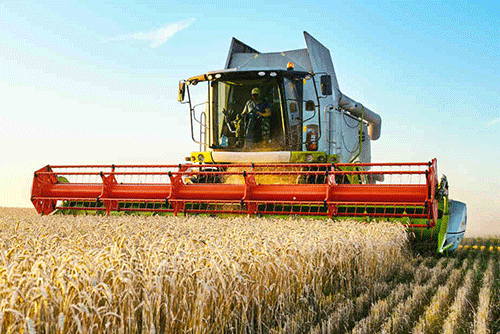Over 46% of wheat producers in the Kunene and Erongo regions have no access to formal markets where they can trade and market their products, which has left them with no choice but to sell their produce for literally peanuts.
This was revealed in the Namibian Agronomic Board’s latest baseline study on the production of wheat by smallholder producers in the Kunene and Erongo regions, which also revealed that more than 54% of wheat producers in the two regions sell their products from home to local community members due to a lack of formal trading setups.
The study also found that many wheat producers in the two regions are willing and prepared to produce and market their products in bulk, but the lack of a formal market deprives them of partaking in the formal mainstream economy.
It also came to the fore that wheat producers in these areas do not have any existing supply agreement contracts with any major entities. However, they all showed a high willingness to enter into supply contract agreements with big millers if such opportunities were provided to them.
Financing was another component that the Agronomic Board’s study also touched on, which showed that almost all smallholder wheat producers in the two regions finance their wheat production activities utilising their savings without a loan or any financial assistance from financial institutions.
Value addition
Currently, there is no value addition taking place apart from the traditional milling of wheat grains by grinding them with stones into flour mainly for consumption. There is a lack of modern milling equipment at almost all available production sites; thus, the communities continue to use traditional milling methods by grinding the grains against stones.
Furthermore, over 92% of wheat producers in the two regions have not received any formal training on wheat cultivation techniques or related skills, while about 8% are said to have received training on wheat production through the ministry of agriculture.
Also, only 32% of total wheat producers are affiliated or registered with farmers’ associations or organisations such as Otjimbingwe Farmers Association (5%), Okombahe Farmers Association (5%), Otjikuyu Farmers Association (10%) and Fransfontein Community Garden (2%), while the remaining (68%) wheat farmers are not affiliated to any association.
The study, thus pointed to the need for organised group farming awareness creation for the benefit of farmers’ associations. There is also a need to avail resources and support such as improved seed varieties, irrigation facilities, and pressure pumps to farmers in these areas, as most of them solely rely on irrigation production systems by utilising natural perennial surface aquifers or springs.
Promising future
Namibian Agronomic Board also empathised the importance of upscaling wheat production in Kunene and Erongo regions through the expansion and clearing of new land and land that is currently underutilised within the production areas.
Effective and adequate infrastructures for wheat processing, storage, and marketing facilities within smallholder wheat production areas are also strongly recommended in the study, as a way to increase value extraction from wheat products.
Furthermore, the study placed special attention on the growing need to conduct wheat field trials to investigate the performance of the different varieties to determine the quality of the grains produced and yield improvement.
The promotion of organised group and contract farming and coordination among wheat producers, processors, and traders was also highly recommended as it will help establish commercialised wheat production in the Kunene and Erongo regions.
Despite the challenges encountered by the farmers, the Namibian Agronomic Board remains resolute that the commercialisation prospect of wheat crops in Namibia is feasible and is a huge part of the country’s strategy towards ensuring food security.
-ohembapu@nepc.com.na



